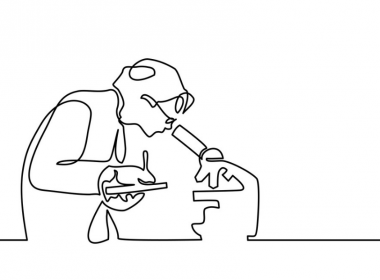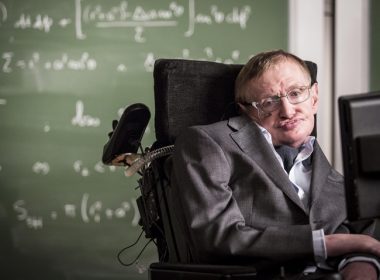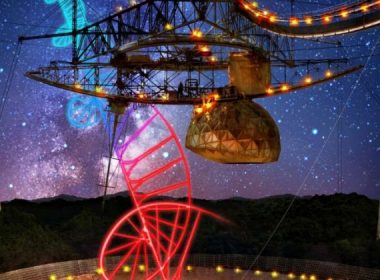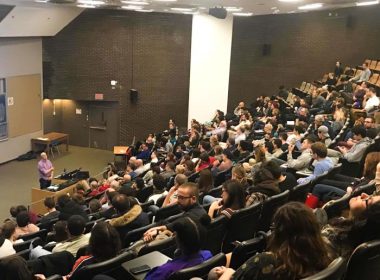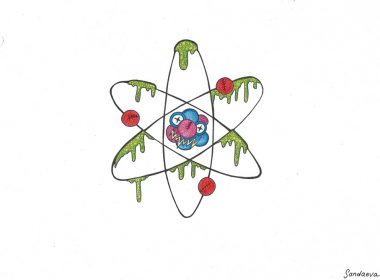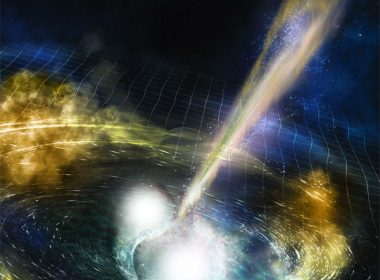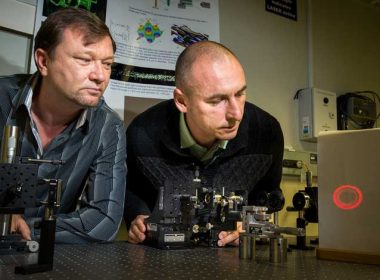Two months ago, my boyfriend picked up a physics minor, and our conversations gradually began to veer off into the realm of Newton’s laws and black holes. I, far from a physics lover, expressed my frustration that our discussions were going way over my head. Soon after, he bought me[Read More…]
Tag: physics
Faculty of Science presents the 28th edition of Soup and Science
From Sept. 9—13, the Faculty of Science hosted Soup and Science, a semesterly event where professors briefly present their research and talk with students at Redpath Museum. The expanding universe Pouya Jafarian Contributor Jonathan Sievers, a professor in the Department of Physics and researcher at the McGill Space Institute, shared[Read More…]
Absurd science names and where they come from
The naming of scientific discoveries can seem, at times, both absurd and random. For example, shmoos, the mating protrusions of yeast, are so named because they look like a 1970s cartoon character. Meanwhile, dominant male elephant seals are called beachmasters and Somniosus microcephalus, the Latin name for the Greenland Shark, literally translates[Read More…]
The McGill Department of Physics presents its third annual Hackathon
“I think everyone wins, and that’s not just a fluff sentence,” Nikolas Provatas, professor in the Department of Physics, said at McGill’s Physics Hackathon. “Everyone wins just by being here. If they go back home and they have something positive to say about science, to me, that’s a success.” From[Read More…]
Exploring Physicist Stephen Hawking’s Scientific Contributions
On March 14, Stephen William Hawking, physicist at Cambridge University and international best-selling author of A Brief History of Time, passed away, leaving behind a legacy of revolutionary discoveries spanning the past five decades. At the age of 21, Hawking was diagnosed with amyotrophic lateral sclerosis (ALS), also known as Lou[Read More…]
Fast radio bursts tangle with unknown forces
Streaking across the sky with a luminosity far greater than the sun’s, fast radio bursts (FRBs) remain powerful yet mysterious phenomena. They were discovered in 2007 when curiosity inspired the astronomer Duncan Lorimer to search the farthest reaches of space, with the FRBs being powerful enough to surpass the typical[Read More…]
AstroMcGill talk sheds light on the Big Bang
The universe is comprised of billions of galaxies—encompassing all of space, all of time, and all of its contents. It all started with a Big Bang 13.8 billion years ago. On Nov. 16, particle physicist and cosmologist Oscar Hernández spoke about the Big Bang at AstroMcGill’s event Where, When &[Read More…]
Sordid tales of quantum physics
More haunting than any ghoul is the occurrence of entanglement, or nonlocality. Entanglement occurs when particles, also known as various small ‘fields,’ are linked. These fields include electrons, photons, atoms, and even molecules, which share a common history that intertwines their futures. Measuring or changing the state of an entangled[Read More…]
Gravitational waves when neutron stars collide
A global effort, with contributions by McGill astrophysicists including Assistant Professor of Physics in the McGill Space Institute (MSI), Daryl Haggard, and postdoctoral researcher Melania Nynka, has detected gravitational waves coming from the collision of two neutron stars in orbit. Among the many implications of this discovery, the origin of[Read More…]
Research Briefs—Oct. 28, 2014
Physicists transport marbles with optical tractor beam The tractor beam—a long-distance invisible attraction beam—is a legendary staple in science fiction. In real life, moving objects using only light seems absurd, if not impossible. However, in a paper published in Nature Photonics, a team of Australian and American physicists successfully transferred[Read More…]

